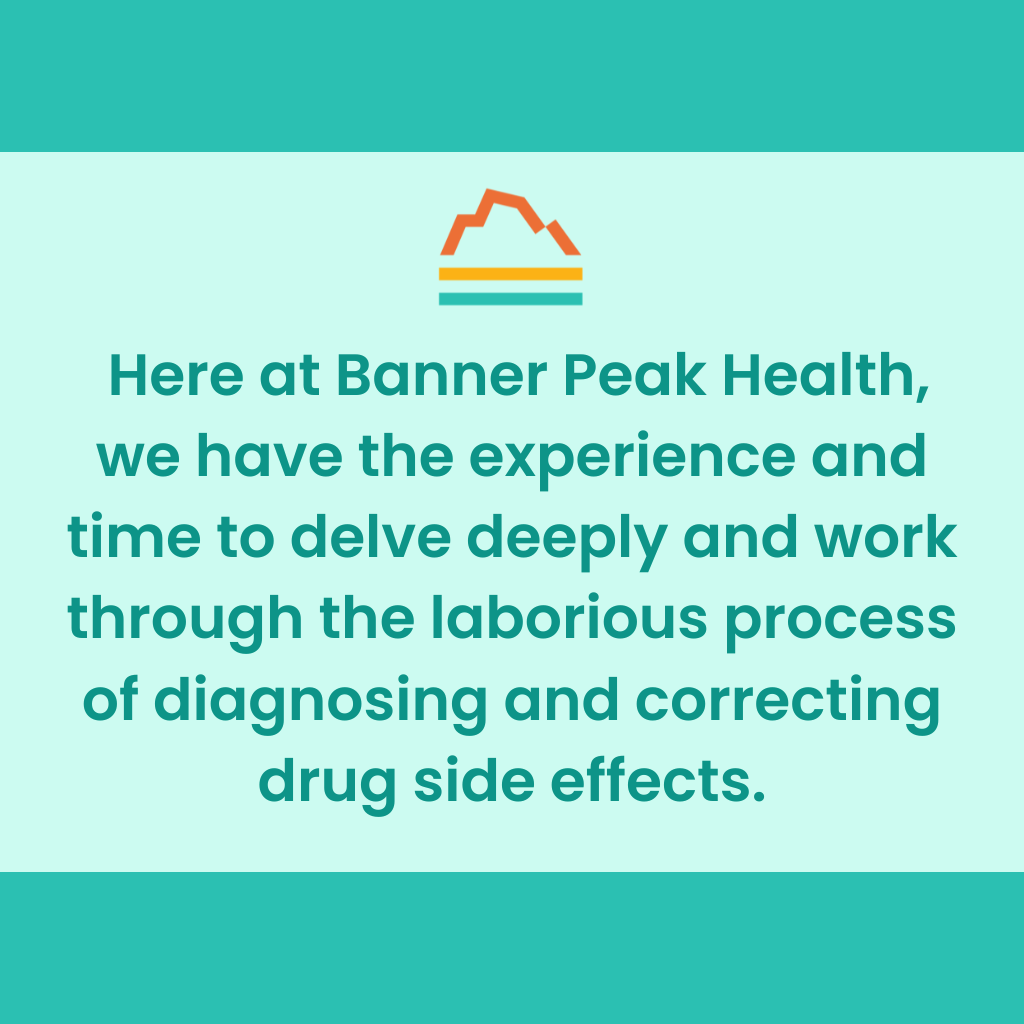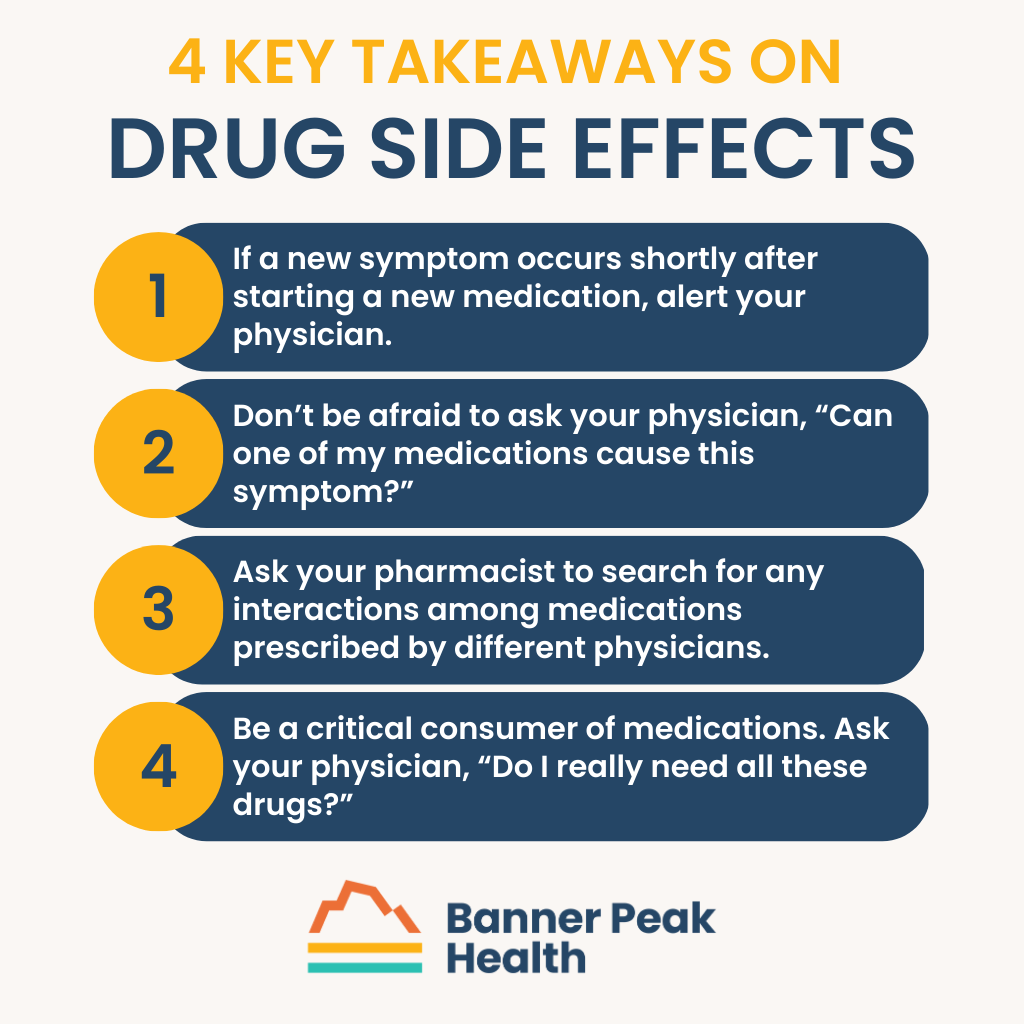The power of modern medical pharmacologic treatment is miraculous. During my time as a physician, I’ve witnessed remarkable strides in our ability to prevent and treat horrible illnesses, such as multiple sclerosis, malignant melanoma, and myocardial infarction.
However, medication therapy is a double-edged sword. I’ve detected many instances of illness caused by side effects of medication.
- A young woman forced to drop out of college due to chronic abdominal pain from a medication designed to prevent migraines.
- A middle-aged businessman unable to sleep because of his asthma inhaler.
- An elderly man who became more confused and agitated due to a medicine designed to ease symptoms of depression.
These are just a few of the countless cases I’ve encountered.
Each drug represents the potential for benefit or harm — and that’s a single drug. Commonly, people take multiple medications simultaneously.
This creates the opportunity for drug interactions — that is, the body reacting differently based on the sum total of the drugs — markedly increasing the possibility of side effects.
So, especially when an individual has enough medical problems to warrant multiple medications, the challenge becomes how to discern what’s caused by the underlying medical illnesses, and what’s caused by the medications used to treat those illnesses.
Work With Your Doctor to Avoid Significant Reactions
The first step in detecting a drug reaction is having the active consciousness that drug reactions exist and are common. Be aware that medications can and do interact with each other — and not often in a positive way.
The second step is discerning when a particular drug was initiated and when a particular symptom began, and it requires meticulous record-keeping. This often provides the strongest hints toward a drug reaction.
Keeping notes in a notebook or on your phone, as long as they’re accurate, is a great way to pass information to your doctor. Digital files are easy to organize and send via email.
The third step involves trial and error. You may be able to work with your doctor to stop taking a single drug, monitor your symptoms, note any improvements, resume taking the drug, and document any symptoms that recur. Keep meticulous records and always update your doctor accordingly.
Please note: There’s no textbook or website that can definitively diagnose a drug reaction in any individual. Trial and error is the gold standard for diagnosing a drug reaction.
Stopping a Drug
While starting a drug is relatively easy, stopping a drug is very, very hard.
From the vantage point of a primary care provider, specialists initiate many drugs. Stopping one of these drugs involves close and careful communication with the original prescribing specialist — and that isn’t always easy.
Diagnosing and treating drug side effects can be extremely difficult in an environment of:
- Time-pressured physicians
- Fractured care among many doctors
- Insufficient time to carefully communicate with patients
Unfortunately, this is the type of environment plaguing traditional healthcare systems.
Concierge Medicine Creates the Right Environment
Here at Banner Peak Health, we have the experience and time to delve deeply and work through the laborious process of diagnosing and correcting drug side effects.
We can spend as much time as we need to diagnose each patient’s drug side effects, both in person and over the phone. We’ll always get the job done right; it’s what our practice was created for.
Today’s Takeaways
Think you’re experiencing a bad reaction from a drug? Follow these tips:
- If a new symptom occurs shortly after starting a new medication, alert your physician.
- Don’t be afraid to ask your physician, “Can one of my medications cause this symptom?”
- Your pharmacist has access to a drug database with drug interaction detection software. Ask them to search for any drug interactions among medications you’ve been prescribed, especially by different physicians.
- Be a critical consumer of medications. Ask your physician, “Do I really need all these drugs?”
At the end of the day, you are in control of your own healthcare experience. Speak up and advocate for yourself — and don’t get comfortable with being uncomfortable!

Barry Rotman, MD
For over 30 years in medicine, Dr. Rotman has dedicated himself to excellence. With patients’ health as his top priority, he opened his own concierge medical practice in 2007 to practice medicine in a way that lets him truly serve their best interests.





